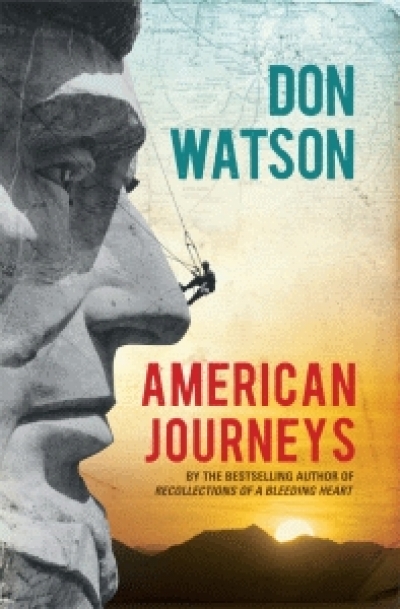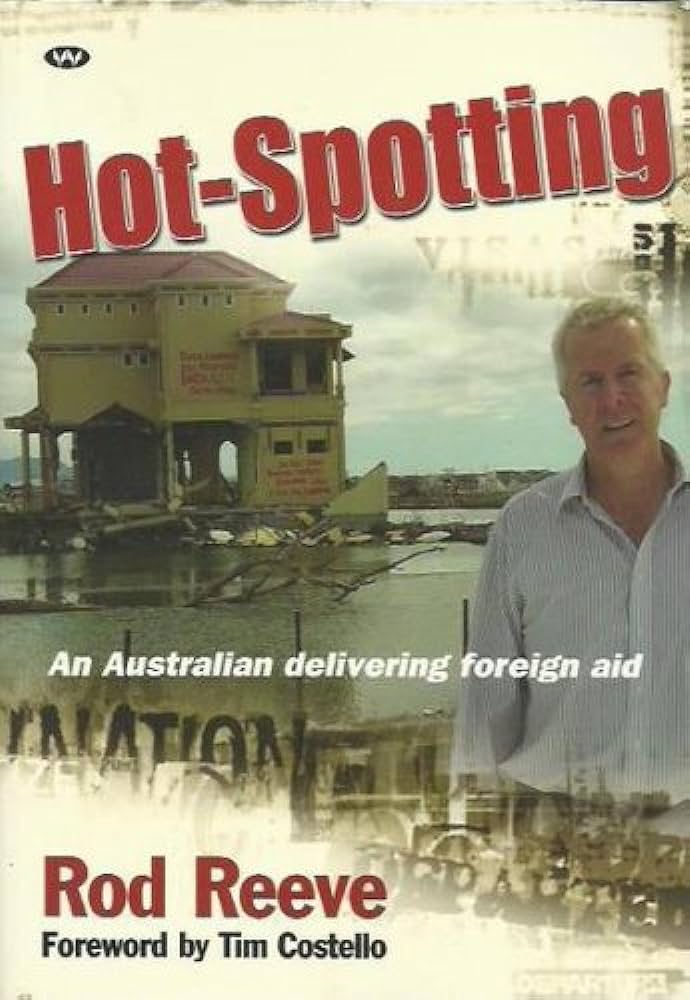Non Fiction
Travel in America is a journey crowded with literary acquaintances. For centuries visitors have striven to make sense of the United States, drawn by its energy, admiring or disturbed by its civic culture. Charles Dickens visited twice, in 1841 and 1867, capturing his observations in American Notes (1842) ...
... (read more)Roma the First: A biography of Dame Roma Mitchell by Susan Magarey and Kerry Round
Roma Mitchell came first in nearly everything. Not only at school and university, but in becoming Australia’s first female OC, Supreme Court judge, Boyer Lecturer, university chancellor and state governor. But she had no inside track to success. Her father was killed in World War I, her mother survived on his pension and the generosity of friends, and Roma and her older sister were taught by the Sisters of Mercy for nothing.
... (read more)Hot-spotting by Rod Reeve & Ardent by Jane Gibian
Rod Reeve manages a company that directs foreign-aid projects. Rather than flying in with helicopter-loads of rice, he focuses on ‘capacity-building’ and infrastructure. Agricultural science is his own speciality, but he has set up and run a variety of projects. He has worked to counter opium production in Pakistan, develop dryland farming in Africa, Iraq and Jordan (he had to evacuate during the 1991 Gulf War), and improve health and education in China, Laos and Indonesia. He assisted with the quarantine service in Papua New Huinea and post-tsunami reconstruction in Aceh.
... (read more)Rupert's Adventure in China: How Murdoch lost a fortune and found a wife by Bruce Dover
For two decades of my life, I worked as a senior executive with first Rupert Murdoch and then Kerry Packer. These were challenging years, not without their hairy moments, but I always felt my best way of retaining any kind of perspective at that time was to conceive of myself as a bit player at the court of a seventeenth- or eighteenth-century monarch
... (read more)'Ithaca itself was scarcely more longed for by Ulysses, than Botany Bay by the adventurers who had traversed so many thousand miles to take possession of it,’ wrote Watkin Tench of his companions on the First Fleet. Governor Phillip’s 1786 Commission had instructed him to build castles. Fitting their vision of the new into the old, settlers named the rocky outcrop above Middle Harbour as ‘Edinburgh Castle’, below which, in 1905, Henry Willis built ‘Innisfallen’, one of many would-be castles strewn around the continent. The newcomers’ lament that the local flowers were scentless and the birds songless had its parallel in the regret that settler Australia would never support a literary culture because it lacked ruins
... (read more)The Milošević Trial: Lessons for the conduct of complex international criminal proceedings by Gideon Boas
At the time of his death in March 2006, Slobodan Milošević had been on trial at the International Criminal Tribunal for the former Yugoslavia (the ICTY) for more than four years. Greeted initially as a victory in the ‘struggle against impunity’, the progress of his trial was soon hindered by thickets of procedural argument and by the cunning of Milošević himself. Diverting attention from events in Croatia, Bosnia and Kosovo – the subject of his trial – Milošević manipulated every legal avenue available to him, giving the impression that, like the farcical and chaotic litigation in William Gaddis’s A Frolic of his Own (1994), the trial was meaningless, ultimately ‘about itself’.
... (read more)Blubberland by Elizabeth Farrelly & Two Kinds of Silence by Kathryn Lomer
In this fascinating and irritating book, Elizabeth Farrelly hits out at almost everything about the modern world. She is an architect, and urban sprawl and ugly buildings are her bêtes noires, though obesity, kitsch and fakery also attract her coruscating attention.
Blubberland is a curious mixture of diatribe and philosophical treatise on cultural theory. Farrelly makes many good points: tight-knit cities, for example, are more energy-efficient than sprawling suburbs, and the ‘sea-change’ fad destroys beauty spots with little increase in happiness. She wonders ‘[w]hy we demand a built lifestyle whose habitual over-indulgence is, by even the standards of our parents’ generation, extraordinary? … Why these houses, and the suburbs full of them, are so ugly? Is it an aesthetic or a moral repugnance?
... (read more)The World of the Book by Des Cowley and Clare Williamson
The World Of The Book is an offshoot of the State Library of Victoria’s permanent ‘Mirror of the World’ exhibition, which uses major works from the SLV’s collections to present a global history of books and ideas. The exhibition itself is a testament to the depth and diversity of the SLV’s collections, and the book is thus part exhibition catalogue, part ‘Treasures’ book.
... (read more)
Making Books: Contemporary Australian publishing edited by David Carter and Anne Galligan
Until the last decade, there has been very little serious scholarly interest in Australian book publishing. Indeed, when I began lecturing in this discipline in 2001, there was no historical or contemporary overview that could be recommended to my students beyond the entry in the Australian Encyclopedia. However, with the recent dramatic growth in Communications courses, and spurred on by projects such as the History of the Book in Australia (HOBA), this situation has suddenly changed. UQP has already published two of the three promised HOBA volumes on the history of Australia’s print culture. Now we have, from the same publisher, a new collection of scholarly articles, which is undoubtedly superior to Paper Empires: A History of the Book in Australia 1946– 2005 (2006), the HOBA volume that dealt inter alia with contemporary publishing. Making Books: Contemporary Australian Publishing is less impressionistic and more systematic in its approach.
... (read more)Peter Doherty, an Australian biomedical researcher, won the Nobel Prize for Physiology or Medicine in 1996 and accordingly has substantial credibility among members of the international scientific community. This book, however, has been carefully crafted for a more general audience, and might well be enjoyed while sitting (hatted and sunscreened) on a beach. The blurb suggests that the contents provide an entertaining, albeit informative, account of the ways in which natural resources such as air, water and hydrocarbons have been harnessed by human ingenuity. But Doherty has a more serious intent, which he deliberately takes time to unfold. The subtext to his light-hearted explanations of how candles, light bulbs and refrigerators work, and how we use a variety of fuels to heat, cool and light our lives, is that this planet is running out of non-renewable energy sources. He suggests that we need to use brainpower and research to find alternatives sooner, not later, if we are to ensure the survival of our children.
... (read more)









